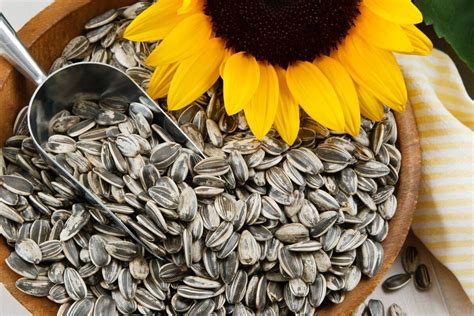Sunflower seeds are a nutritious and delicious snack that can be enjoyed year-round. However, like all food products, sunflower seeds can go bad over time naturally. Factors such as storage conditions, handling, and packaging can affect the shelf life of sunflower seeds.
What Affects the Shelf Life of Sunflower Seeds?
Several factors can contribute to the degradation of sunflower seeds over time. These include:
- Moisture: High humidity can cause sunflower seeds to become rancid or develop off-flavors. It's essential to store sunflower seeds in a dry environment to maintain their quality.
- Light: Direct sunlight can cause sunflower seeds to lose their nutritional value and become stale. It's best to store sunflower seeds in a dark or shaded area.
- Temperature: Extreme temperatures can affect the shelf life of sunflower seeds. Store sunflower seeds in a cool, dry place, away from heat sources.
- Pests and rodents: Insects, rodents, and other pests can contaminate sunflower seeds, leading to spoilage and degradation.
- Packaging: Poor packaging can allow moisture, light, and pests to reach the sunflower seeds, reducing their shelf life.
How Long Do Sunflower Seeds Last?
The shelf life of sunflower seeds depends on various factors, including storage conditions and packaging. Generally, sunflower seeds can last for:
- Raw sunflower seeds: 6-12 months when stored in a cool, dry place.
- Roasted sunflower seeds: 3-6 months when stored in an airtight container.
- Oil-rich sunflower seeds: 3-6 months when stored in a cool, dry place.
Signs of Spoilage
Sunflower seeds can exhibit several signs of spoilage over time. Look out for:
- Rancid smell: Sunflower seeds can develop an unpleasant, sour smell when they go bad.
- Stale or sour taste: Sunflower seeds can lose their natural flavor and become stale or sour.
- Mold or mildew: Visible signs of mold or mildew on the sunflower seeds indicate spoilage.
- Insect infestation: Sunflower seeds can become infested with insects, such as weevils or beetles.
Preventing Spoilage
To extend the shelf life of sunflower seeds, follow these tips:
- Store in a cool, dry place: Keep sunflower seeds away from heat sources, moisture, and direct sunlight.
- Use airtight containers: Store sunflower seeds in airtight containers, such as glass jars or plastic containers with tight-fitting lids.
- Freeze: Freezing sunflower seeds can help preserve their nutritional value and extend their shelf life.
- Check for pests: Regularly inspect sunflower seeds for signs of insect infestation or pest damage.

Conclusion
Sunflower seeds can go bad over time naturally due to various factors, including moisture, light, temperature, pests, and packaging. By storing sunflower seeds in a cool, dry place, using airtight containers, and checking for pests, you can extend their shelf life. Always inspect sunflower seeds for signs of spoilage before consuming them, and enjoy them within the recommended shelf life.
Gallery of Sunflower Seeds





Frequently Asked Questions
Can I store sunflower seeds in the refrigerator?
+Yes, you can store sunflower seeds in the refrigerator to extend their shelf life. Keep them in an airtight container and maintain a consistent refrigerator temperature below 40°F (4°C).
Can I freeze sunflower seeds?
+Yes, you can freeze sunflower seeds to preserve their nutritional value and extend their shelf life. Place the sunflower seeds in an airtight container or freezer bag and store them at 0°F (-18°C) or below.
How do I know if sunflower seeds are spoiled?
+Check sunflower seeds for signs of spoilage, such as rancid smell, stale or sour taste, mold or mildew, and insect infestation. If you notice any of these signs, it's best to discard the sunflower seeds.
